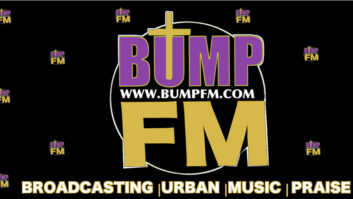Text has been updated to clarify that the Urban One mentioned in the story is not the entity formerly known as Radio One.
A broadcaster has lost its bid to have a series of Florida station reassignments overturned.
In January 2021, the Media Bureau at the Federal Communications Commission granted an application that assigned the licenses of three Florida stations from Florida SportsTalk LLC to Hitmaker Music Group LLC. The reassignment affected AM station WGGG in Gainesville, the FM translator station W221DX as well as WMOP(AM) in Ocala.
Soon after the application was granted, Urban One Broadcasting Network LLC (UOBN) filed an objection, asking the bureau to dismiss the reassignment application because UOBN said it had previously entered into a local marketing agreement with SportsTalk that provided UOBN brokered time on the stations as well as an option to purchase the stations outright. UOBN shared a copy of a proposal that spelled out LMA programming details and the option to purchase the stations that was presented to — and signed by — SportsTalk in November 2019.
In its objection, UOBN also said that SportsTalk had engaged in racial discrimination against UOBN by selling the stations to Hitmaker.
In a response, SportsTalk said that although the two had exchanged proposals about a possible LMA and sale, there was no executed contract between the two. SportsTalk said that its decision to sell to Hitmaker was based on financial need and that UOBN failed to pursue discussions about entering into an agreement to broker and acquire the stations.
After reviewing the documentation, the Media Bureau issued a staff letter denying UOBN’s objection and granting the reassignment application, saying that UOBN had not provided sufficient justification for dismissing the reassignment. Specifically, the staff letter said that the matter was a private contractual dispute that falls outside of the commission’s purview. It also found that UOBN’s claim of racial discrimination was unsupported.
UOBN then filed an application for review, saying its claim is based on “U.S. civil rights laws that prohibit business practices involving disparate treatment of those persons belonging to protected classes under Title VII of the equal employment laws.” The company also said that the FCC has a compelling interest to promote diversity in the broadcasting industry and that the Media Bureau failed to conduct an inquiry into whether SportsTalk’s actions had a disparate impact on UOBN.
The government must have an interest in diverse programming, UOBN said, referring to language within the Communications Act of 1934 that requires the bureau to “give preferences to applicants where the granting of a license would result in media diversification.”
UOBN also said that the decisions laid out in the bureau’s staff letter were arbitrarily decided and made in a biased manner.
But after reviewing the bureau’s staff letter, the commission dismissed UOBN’s application on several grounds, both procedural and substantive. The commission said that the claims contained in UOBN’s application for review were not presented properly to the bureau (FCC Rules require parties to raise new arguments at certain stages of the review process). As a result, the commission said the new arguments were procedurally barred.
[See Our Business and Law Page]
The commission also denied UOBN’s arguments on its merits. The commission said it takes claims of discrimination seriously and reiterated the language in Section 73 of the FCC Rules that explicitly prohibits any entity from engaging in discrimination on the basis of race, color, religion, national origin or sex in the sale of broadcast stations. But the commission said UOBN must make a prima facie case early on to show that the transaction was tainted by discrimination. The commission said UOBN failed to do so.
The commission also found that the broadcaster misplaced its reliance on equal employment laws and the disparate impact provisions contained within them. The Title VII law that UOBN mentions prohibits employment discrimination and is designed to protect employees from discrimination from their employers. No employer/employee relationship exists in this particular situation, the commission said. As a result, the commission denied UOBN’s request to conduct an inquiry into whether SportsTalk’s action had a disparate impact on UOBN.
The commission also reminded UOBN that the discussions about the LMA and possible sale were part of a private contractual dispute rather than a decision that the commission can weigh-in upon.
The FCC also rejected UOBN’s allegation that the Media Bureau did not properly consider the issue of diversity when weighing in on this decision. The FCC noted that Section 309 of the Communications Act, which UOBN said the bureau failed to consider, is not applicable in this case because it does not involve mutually exclusive applications for a license or construction permit that the commission has the authority to permit. “Rather, this case involves the assignment of existing authorizations to which Section 309 does not apply,” the commission said. The commission said it does not intervene in matters involving the interpretation and enforcement of contracts for the sale of broadcast stations in the absence of an argument made early on that shows a case of discrimination.
As a result, the commission found that Urban One Broadcasting Network failed to demonstrate that the Media Bureau erred in its initial decision and then dismissed and denied UOBN’s application for review.










